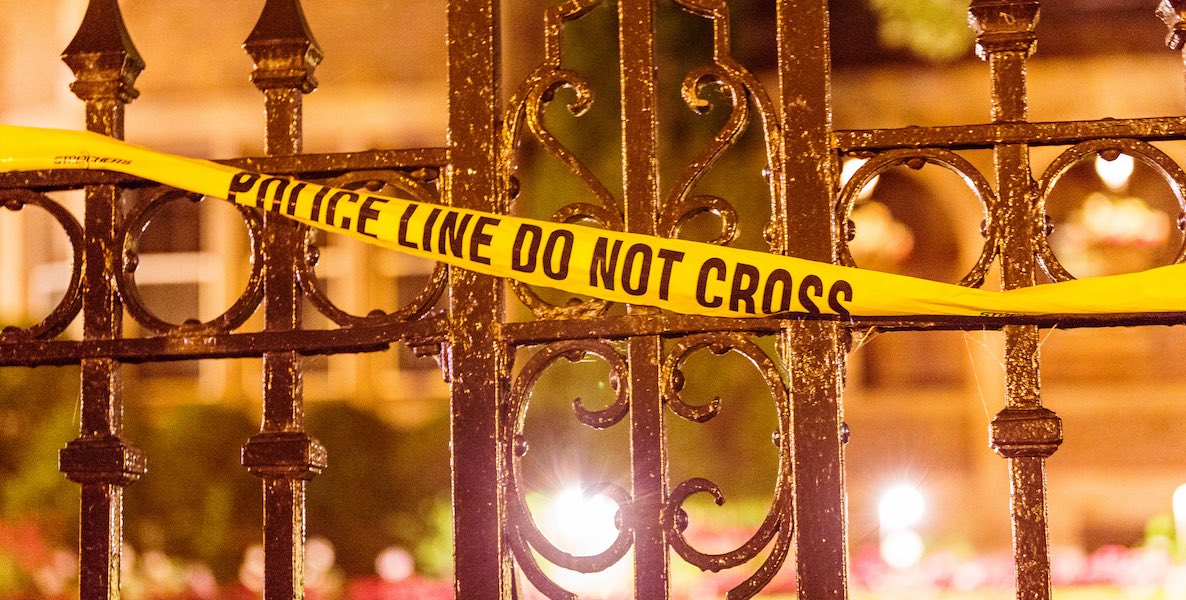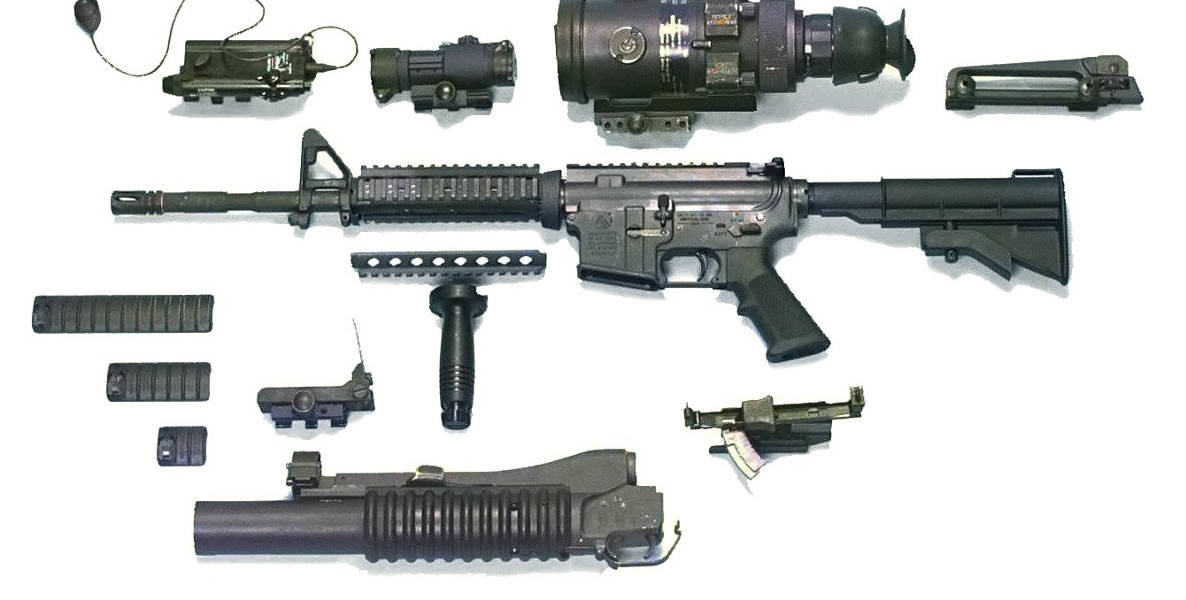Dead bodies litter the ground—both here and abroad—lying in mute testimony of our failure to learn to live in peace with each other. First there’s the work of the terrorists, dispensing random death the way the wind deposits leaves in autumn, with neither design nor intent. Then there is the constant hum of urban violence; so incessant and omnipresent that it almost blends into the background of our national soundtrack.
And now our Summer of Discontent offers up the bullet-riddled bodies of Alton Sterling, Philando Castile and those of five Dallas area police officers.
At first glance, all of these deaths are separated by time, place and motivation. Some of them are the work of overseas jihadists, others were killed by teenage gangbangers, and worse still some were executed under the color of legal authority. But there are two things that tie all of these murders and bodies together. Whether they occur in Philly or Iraq, or whether the bullets fly from the gun of a gangster or a cop, all were killed as a result of someone’s twisted sense of delivering Justice, by individuals who were able to magnify their malice, fear or rage through the use of firepower.
There is a seminal truth behind the carnage that we see splayed across our TV screens: People are perceiving themselves to be the victims of unfair treatment, and are using tools at their disposal that they feel will allow them to powerfully make things right!
Guns offer instant access to voice and power; they allow the formerly unnoticed, and socially impotent, to bark loudly, and bite extensively. Firepower exponentially ramps up the heft of the disenfranchised person…That’s why Colonel Samuel Colt’s famed six-shooter revolver was nicknamed “The Equalizer.”
Be assured, in virtually all cases their quests for justice are perverse and misdirected. But still our only hope of staunching this bloodletting is by trying to understand those who perpetrate these ugly deeds in the name of justice. So indulge me for a moment as I try to tie all of the ugliness together.
It begins with the human thirst for Justice, a thirst that is an innate, human birthright. All of us have a natural inclination to believe in fairness, that wrong things will be made right. But when we sense that the wrongs that we see and endure will continue on, unaddressed and uncorrected, an irritating sense of Injustice is born. This is unacceptable, and all too often this leads to alienation and anger, and ultimately to outrage.
Left unchecked, this festering outrage produces a poisonous belief that can lead a person to conclude that they have a right—almost an obligation—to act in destructive ways to balance the scales of Justice. One prominent psychiatrist, Dr. Ivan Boszormenyi-Nagy, gave this mindset a name—he called it Destructive Entitlement.
According to Dr. Nagy, Destructive Entitlement explains why people who perceive themselves to be wronged are able to assume the right to do some very destructive things in the name of fixing their problems. After all, in the face of so much injustice and pain, somebody ought to do something! And in their eyes, they are just trying to be… somebody.
Indulge me further as I apply this…
- There are many cops out there who feel sick and tired of criminals and “thugs” (that’s coded language, there) wreaking havoc and threatening society. It ain’t right, it’s unfair, and somebody ought to do something! That cop sees a perceived thug, and decides that today is the day for him to be that somebody.
- A man grows up feeling that his beliefs and culture are the object of systematized insult and oppression, feeling robbed of both dignity and divine destiny. Every day is a struggle to discover meaningful selfhood, and the inner conviction urges a belief that somebody ought to do something to make things right—then another man with a persuasive doctrine and a loaded gun offers a solution. A terrorist is born.
- And everyday in the ‘hood a young ‘un wakes up with the threat of simply trying to survive because he/she doesn’t have enough—or they simply don’t feel that they are enough! Their wide eyes take in the all-too-available pictures of others who have plenty; folks who often throw away more than folks in the ‘hood possess. The creeping sense of “nobody-ness” (as coined by Martin L. King) erases a healthy sense of self, and thereby destroys the capacity for empathy. Life itself becomes a constant threat to self-esteem. It isn’t fair, and somebody ought to do something!
You get my drift?
I am not saying that these people are right for feeling as they do; I am simply offering explanation as to how some people get to the point where inner rage is born – and then justified. After that, all that remains is for someone to find the means to magnify their rage so that they can gain the power to do what needs to be done from their perspective in order to make things right, to correct the injustice.
And boy oh boy, how a gun fills the bill!
With deceptive seduction, guns offer instant access to voice and power; they allow the formerly unnoticed, and socially impotent, to bark loudly, and bite extensively. Firepower exponentially ramps up the heft of the disenfranchised person, and offers itself as a balancing tool for negotiation.
That’s why Colonel Samuel Colt’s famed six-shooter revolver was introduced with the nickname “The Equalizer.”
So in the name of fixing things and making them right, guns (and bombs) get grabbed, triggers get pulled, and bloodied bodies fall to the earth. Those of us who most keenly feel a sense of loss in the aftermath of these tragedies then go about the business of assigning blame, affixing labels, and demanding vindication for our loss and pain. Guilt and shame spread, people attack and defend based on their perspective; lawyers get rich and jails get full…
But the matter of actually getting to the root cause—perceptions of injustice, and a twisted pursuit of vindication—tends to get lost.
You cannot get to the heart of the matter without dialogue and honest attempts at understanding that which you do not naturally feel. This requires more than simple conversation; this requires a divestment of one’s sense of “rightness,” and a bold willingness to release what we consider to be our divine rights for either privilege or revenge.
I have called my friend Rue Landau, executive director of the Philadelphia Commission on Human Relations, to see how we can work together to foster engagements and dialogue. I am aware that the process is the product here; starting and doing is the most important thing. People tend to stop shooting when they are talking, and that’s a good place to start.
Trust me, it is far easier to draw lines in the sand, to make accusations and cast blame and point fingers than it is to enter into this kind of healing engagement. Only the strong and the wise can take this trip; and if we are lucky they will teach what they learn and lead where they have gone—like Gandhi and King did in the last century.
With that in mind I have called my friend Rue Landau, executive director of the Philadelphia Commission on Human Relations, to see how we can work together to foster engagements and dialogue to this end. I am aware that the process is the product here; starting and doing is the most important thing. People tend to stop shooting when they are talking, and that’s a good place to start.
But in the meantime there is a more urgent need to make sure that those possessed with a perverted desire to pursue justice through destructive means find it well nigh impossible to get their eager hands on a gun. Maybe then, while complaining about their inability to get a gun, they’ll also talk about why they are so upset in the first place. Who knows? Maybe a conversation might begin.
Photo header: Flickr/Tony Webster




